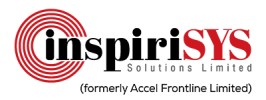Filter interviews by
Streebo Associate Technical Consultant Interview Questions and Answers
Streebo Associate Technical Consultant Interview Experiences
3 interviews found
I applied via Job Portal
Normal aptitude ques, and questions on c
Easy to medium level questions from leetcode
(2 Questions)
- Q1. Detailed questions on excel and why we need it
- Q2. Detailed ques on dbms
I applied via Campus Placement and was interviewed in May 2023. There were 6 interview rounds.

Average aptitude ques
Test over the zoom meet with screen share
(1 Question)
- Q1. In hr round also they ask question like technical round From java write code of fibonacci series ,overloading,etc
In technical round 2 parts coding test and then technical interview.
Prepare dsa questions in any language all ques was from leetcode
Screen share hogi zoom pr be Prepare
(2 Questions)
- Q1. Coding test wale questions ko screen share krk explain kro pura
- Q2. 1.java public static void method 2.javascript typeof(Null) 3.python tuple and list Nested array And even reasoning questions in interview And many more ques from java
(2 Questions)
- Q1. Management round interview
- Q2. Questions from your resume In this too they ask technical questions Database,rdbms,your projects experience Java can be use in frontend or javascript in backend? Difference in excel and databases like my...
Interview Preparation Tips
I applied via Naukri.com and was interviewed in Jun 2022. There were 6 interview rounds.

There were multiple MCQ questions from C, C++ and JavaScript programming languages.
I had two write solutions for two problems based which were based on DSA.
Difficulty level was easy and moderate
(which were from leetcode)
(1 Question)
- Q1. Multiple questions from Spring, Java, Angular were asked like what's Depending Injection, POM,etc., Exception Handling, Life cycle of components. Directives, etc.
(1 Question)
- Q1. Which one is better to store data, Excel or Relation Database System?
- Ans.
Relational Database System is better for storing data than Excel.
Excel is good for small datasets, but RDBMS is better for larger and more complex datasets.
RDBMS allows for better data organization, querying, and analysis.
Excel is prone to errors and data corruption, while RDBMS has built-in data integrity checks.
RDBMS also allows for multiple users to access and modify data simultaneously.
Examples of RDBMS include MyS
(1 Question)
- Q1. I was asked to tell more about my working experience and my graduation, because I had WILP education.
Interview Preparation Tips
- DSA
- Java
- C++
- Javascript
- Spring
- Spring Framework
- Angular
Skills evaluated in this interview
Top trending discussions






Interview questions from similar companies

Software Developer Interview Questions & Answers
Hummingbird Web Solutionsposted on 12 Sep 2023
I applied via Naukri.com and was interviewed before Sep 2022. There were 3 interview rounds.

(2 Questions)
- Q1. Basic JS questions
- Q2. String Concat through function
Advanced JS, PHP related questions
Interview Preparation Tips

Software Developer Interview Questions & Answers
Hummingbird Web Solutionsposted on 24 Oct 2024
(1 Question)
- Q1. 3 Question was there related to architecture and Computer networks.
(2 Questions)
- Q1. Microservices and Monolith.
- Q2. Leetcode hard Sum.

I applied via Recruitment Consulltant and was interviewed before Apr 2023. There were 3 interview rounds.
(1 Question)
- Q1. General fit to profile filtration
(3 Questions)
- Q1. To the profile applied for
- Q2. Explain an actual component
- Ans.
An actual component is a reusable and modular piece of software that performs a specific function within a larger system.
Components are often designed to be independent and can be easily integrated into different systems.
Examples of components include buttons, input fields, and dropdown menus in a user interface.
Components can have their own logic, styling, and functionality, making them versatile building blocks for s
- Q3. Design the architecture
- Ans.
Designing the architecture for a software system involves planning the structure and components of the system.
Identify the key components of the system and their interactions
Choose appropriate technologies and frameworks for each component
Consider scalability, performance, security, and maintainability
Create a detailed diagram or documentation of the architecture
(1 Question)
- Q1. Attitude towards work
Interview Preparation Tips
Skills evaluated in this interview

Software Developer Interview Questions & Answers
BigStep Technologiesposted on 11 Feb 2022
I applied via Campus Placement and was interviewed in Aug 2021. There were 4 interview rounds.
1st test was aptitude and a easy coding test
The 2nd test was pure coding based test on hacker rank platform and contains 2 easy and 2 medium question
(1 Question)
- Q1. Round 3 was technical interview and asked from basics of computer programming and architecture
(4 Questions)
- Q1. What is your family background?
- Q2. Why are you looking for a change?
- Q3. What are your strengths and weaknesses?
- Q4. Tell me about yourself.
Interview Preparation Tips

Software Developer Interview Questions & Answers
Apmosys Technologiesposted on 24 Apr 2024
I applied via Campus Placement and was interviewed in Oct 2023. There were 3 interview rounds.
It was online 60min test.
It was offline 30 min test.
(2 Questions)
- Q1. Oops,dbms,css,html,dsa,java.
- Q2. It was very friendly .
Interview Preparation Tips
- Java

Software Developer Interview Questions & Answers
Apmosys Technologiesposted on 26 Apr 2024
I applied via Campus Placement and was interviewed before Apr 2023. There was 1 interview round.
(6 Questions)
- Q1. What are the 4 principles of oops?
- Ans.
The 4 principles of OOP are Inheritance, Encapsulation, Abstraction, and Polymorphism.
Inheritance allows a class to inherit properties and behavior from another class.
Encapsulation restricts access to certain components within a class, protecting the data.
Abstraction hides complex implementation details and only shows the necessary features.
Polymorphism allows objects to be treated as instances of their parent class.
- Q2. What is the difference between string buffer and string builder?
- Ans.
String buffer is synchronized and thread-safe, while string builder is not synchronized and faster.
String buffer is synchronized, making it thread-safe for use in multi-threaded environments.
String builder is not synchronized, providing better performance in single-threaded applications.
String builder is faster than string buffer due to lack of synchronization overhead.
Example: StringBuffer sb = new StringBuffer(); Str
- Q3. Why strings are immutable?
- Ans.
Strings are immutable in order to ensure data integrity and security.
Immutable strings prevent accidental data modification, ensuring data integrity.
Immutable strings enhance security by preventing unauthorized access or tampering.
Immutable strings allow for more efficient memory management and optimization.
Example: 'Hello' cannot be changed to 'Hella' directly, a new string must be created.
- Q4. What are the different types of exception in java?
- Ans.
There are two types of exceptions in Java: checked exceptions and unchecked exceptions.
Checked exceptions are checked at compile time and must be handled using try-catch or throws keyword.
Unchecked exceptions are not checked at compile time and include RuntimeException and its subclasses.
Examples of checked exceptions include IOException, SQLException, and ClassNotFoundException.
Examples of unchecked exceptions include...
- Q5. Explain linear search algorithm.
- Ans.
Linear search is a simple searching algorithm that sequentially checks each element in a list until a match is found.
Iterate through each element in the list
Compare the current element with the target value
Return the index if a match is found, otherwise return -1
- Q6. Difference between JDK jvm and jre
- Ans.
JDK includes JRE and development tools, while JRE includes only the Java Runtime Environment.
JDK stands for Java Development Kit, which includes JRE and development tools like compilers and debuggers.
JRE stands for Java Runtime Environment, which includes JVM and libraries necessary to run Java applications.
JVM stands for Java Virtual Machine, which is responsible for executing Java bytecode.
JDK is used for developing ...
Interview Preparation Tips
Skills evaluated in this interview
Software Developer Interview Questions & Answers
Thinkitive Technologiesposted on 27 Aug 2024
I applied via Job Portal
(2 Questions)
- Q1. All about core java
- Q2. Front end and My Sql
Streebo Interview FAQs
Some of the top questions asked at the Streebo Associate Technical Consultant interview -
Tell us how to improve this page.
Streebo Interviews By Designations
- Streebo Software Developer Interview Questions
- Streebo Associate Technical Consultant Interview Questions
- Streebo Associate Business Analyst Interview Questions
- Streebo Project Manager Interview Questions
- Streebo Technical Consultant Interview Questions
- Streebo Senior Business Analyst Interview Questions
- Streebo Software Developer Intern Interview Questions
Interview Questions for Popular Designations
- Technical Lead Interview Questions
- Technical Specialist Interview Questions
- Member Technical Staff Interview Questions
- Technical Analyst Interview Questions
- Technical Consultant Interview Questions
- Technical Architect Interview Questions
- Senior Technical Lead Interview Questions
- Associate Technical Leader Interview Questions
- Show more
Streebo Associate Technical Consultant Interview Process
based on 3 interviews
Interview experience
Interview Questions from Similar Companies
Fast track your campus placements
Streebo Associate Technical Consultant Reviews and Ratings
based on 11 reviews
Rating in categories
|
Technical Consultant
45
salaries
| ₹4 L/yr - ₹12.1 L/yr |
|
Associate Technical Consultant
40
salaries
| ₹3 L/yr - ₹7 L/yr |
|
Business Analyst
20
salaries
| ₹3 L/yr - ₹9.7 L/yr |
|
Project Manager
14
salaries
| ₹5.5 L/yr - ₹18 L/yr |
|
Associate Business Analyst
10
salaries
| ₹3.2 L/yr - ₹4 L/yr |

Accel Frontline

Northcorp Software

Elentec Power India (EPI) Pvt. Ltd.

HyScaler
- Home >
- Interviews >
- Streebo Interview Questions >
- Streebo Associate Technical Consultant Interview Questions











